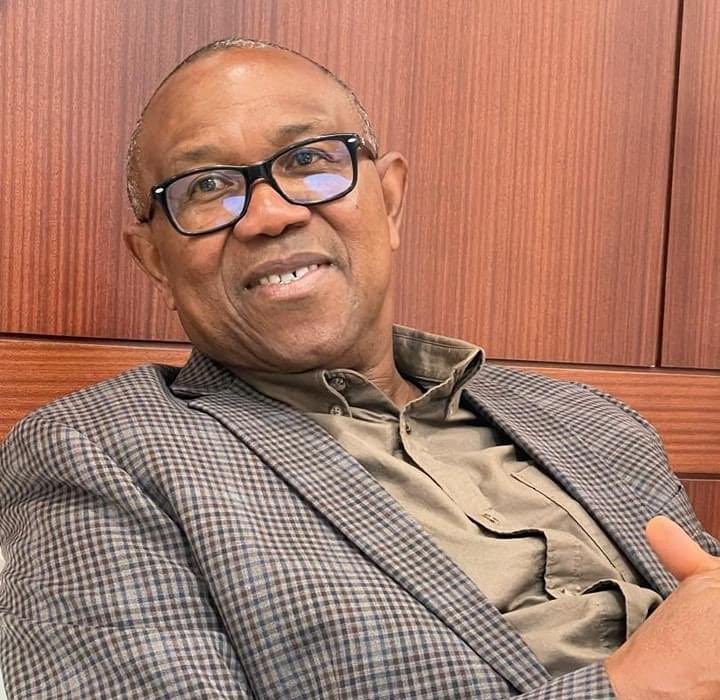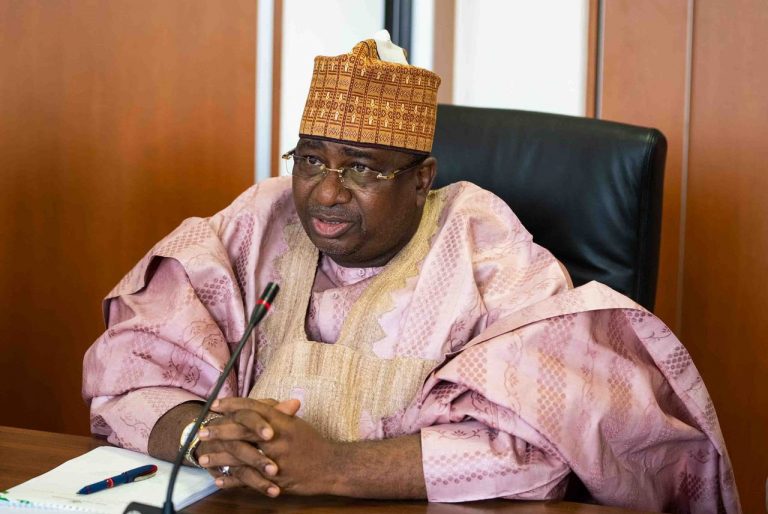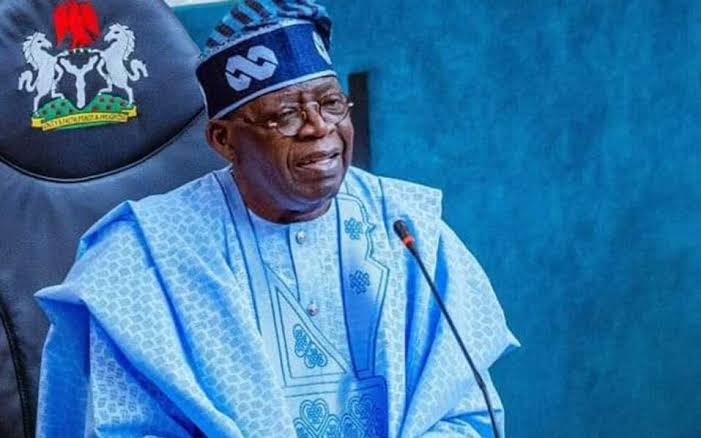In the light of the escalating coups in Africa, with the West African subregion having the highest, the Federal Government has dismissed any fears of coup in Nigeria, saying the country has gone past a forceful takeover of government.
It stressed that Nigerians had fully embraced democracy and that the country’s democratic institutions were becoming stronger. It said the fact that some African countries, including neighbouring Niger Republic, witnessed coup in recent times did not put Nigeria under any form of fear.
The Minister of Information and National Orientation, Mohammed Idris, said this in an interview with one of our correspondents on Friday, noting, “I can tell you that there is no fear or apprehension at all. We have gone past that, and we have been a democratic country all this while with the institutions of democracy getting stronger.”
Meanwhile, some retired generals in separate interviews with our correspondents warned that the only way to avoid coups on the continent was for elected leaders to respect constitutional provisions and ensure good governance in their respective countries. While not justifying the military takeovers, they said leaders must be accountable and desist from repressive rule if coup must become a thing of the past.
The continent witnessed its latest coup and the second one in 2023 on Wednesday when some military personnel in Gabon seized power and placed the ousted President, Ali Bongo, and his family members under house arrest. Gabon is in Central Africa.
After the forceful takeover, which brought to seven the number of coups on the continent within the past three years, the soldiers announced the annulment of last Saturday’s presidential election that renewed Bongo’s prolonged rule, bringing to an abrupt end the Bongo family’s 56-year rule in the country.
Ali’s father, Omar Bongo, ruled the country from 1967 to 2009, and after his death, his son took over and remained in power until Wednesday.
About one month earlier, some soldiers in Niger Republic on July 26, 2023, also seized power and placed the ousted President, Mohamed Bazoum, under house arrest. The junta has since asked for a three-year transition period, which the Economic Community of West African States rejected, insisting that the junta should return the country to democracy or be forced to do so by its task force. Niger is in West Africa.
Also, on January 24, 2002, the military in West Africa’s Burkina Faso ousted the then President Roch Marc Christian Kabore, while soldiers in Sudan, led by General Abdel Fattah al-Burhan, sacked the civilian rule in place in the country and arrested political leaders while declaring a state of emergency. Sudan is in North Africa.
About two years ago, September 5, 2021 precisely, the then President of Guinea, Alpha Conde, was sacked by the military and was replaced by Colonel Mamady Doumbouya. After his sacking, he wasn’t declared “free” by the military until April, 2023. The junta promised to return the country to civil rule by the end of 2024. Guinea is also in West Africa.
Prior to this, Mali, also in West Africa, witnessed two coup within a year. On August 18, 2020, the then President, Ibrahim Boubacar Keita, was ousted by the military and a transitional leader installed. But by May, 2021, about nine months after, the military arrested the President and the Prime Minister, after which they inaugurated one of them as the transitional President. They also promised a return to democracy in 2024.
Independent of these, the military also retained its hold on power in Chad after its President, Idriss Deby, was killed on the battlefield on April 20, 2021. His son, General Mahamat Idriss Deby Itno, has been in power since then despite a promised two-year transitional period. Chad is in Central Africa.
Out of the seven countries, West Africa, where Nigeria belongs, has recorded four coups, which is the highest; Central Africa has recorded two while North Africa recorded one.
No pressure –FG
On account of the intensifying coup and growing apprehension that it could spread to other countries on the continent, the Federal Government has said Nigerians have nothing to worry about.
Speaking further, the information and national orientation minister stated, “Nigeria is a different country. Nigerians will no longer accept such, so it will be difficult for anyone, at this point of our national development, to come out to do that or for us to start nursing any apprehension. We have very strong democratic institutions, so it is very difficult for anybody to just take up arms against the state. So, there is no apprehension at all.
“We have to stand up against military takeover anywhere on the continent. That does not mean we are afraid that such could happen in Nigeria. The fact that something like that happened elsewhere does not mean we have to live in fear. No, we have gone past that.”
…dismisses military shakeup
In what appears to be a swift response through shakeup in their military hierarchies, Presidents Paul Kagame of Rwanda and Paul Biya of Cameroon, both of whom have spent decades in office, retired a total of 1,029 senior military officers on Thursday. While Kagame has spent 23 years in office, 90-year-old Biya has been in office since 1982, making 41 years.
The Rwanda Defence Force, according to a local national newspaper, News Times, approved the retirement of 12 generals, including two four-star generals, James Kabarebe and Fred Ibingira, two three-star generals, Charles Kayonga and Frank Mushyo Kamanzi, and several officers.
Among those retired are two four-star generals, James Kabarebe and Fred Ibingira, two three-star generals, Charles Kayonga and Frank Mushyo Kamanzi. Kabarebe and Kayonga have previously served as Chief of Defence Staff of RDF, while the other two have been service chiefs previously.
“The President has also approved the retirement of 83 senior officers, six junior officers and 86 senior non-commissioned officers, 678 whose contracts ended and 160 medical discharges,” the statement added.
In Cameroon, the President reshuffled the military with new appointments to the Controle Generale des Armees. The new controllers are Capt Ajeagah Njei Félix Colonel and Colonel Nguema Ondo Bertin Bourger. Appointments were also made to the positions of Technical Advisers, Bureau Commissariat, and Air Force Technical Inspector.
When asked if there would be any shakeup in Nigeria, the minister said government did not have such plans, adding that Nigeria’s democracy remained stable and peaceful. He added, “That does not even arise. Let’s not talk about what does not even exist at all. Nigeria is stable and peaceful, and all our democratic institutions are very strong and are getting stronger. Like I said, there is no fear or apprehension at all.”
‘Tinubu wants peace’
The minister also emphasised that President Bola Tinubu, who is also the Chairman of ECOWAS, is not interested in any war with Niger.
Many Nigerians had rejected the initial threat by the Tinubu-led ECOWAS that it would consider military action against Niger if it failed to reinstate Bazoum and revert to democratic rule within seven days.
Meanwhile, after persuasion and several peace moves, ECOWAS appears to be considering peace moves, a position adopted by the subregional Committee of Chiefs of Defence Staff.
Tinubu on Thursday proposed a nine-month-transition period to the junta.
The minister however stressed that Tinubu remained committed to peace in Niger.
He said, “The President is interested in the peaceful resolution of this conflict. Of course, he has maintained consistently that there is nothing off the table, but the preference and number one choice for Mr President is that there should be a very peaceful resolution of the conflict there or the return to democratic order.
“The President is a democrat and there is no way he will not support democracy anywhere in the world, particularly on the African continent. So, discussions are ongoing and the fact that something has happened in Gabon does not in any way take away the President’s eyes from the issue in Niger.
“We are not beating the drums of war and war is the last resort for anybody. The President is not interested in war; he is interested in the peaceful resolution of the constitutional disorder there.”
He stressed that consultations were ongoing on the Niger coup.
The minister added, “People are aware that on two occasions, a former Head of State, General Abdulsalami Abubakar, was there and of course, we know that they didn’t really get through because of some reasons for which the military authorities there have explained and apologised.
“They went back there for constructive conversations. You also know that there are efforts by the Council of Ulama that went there two times now. You are also aware that the Nigerian Supreme Council for Islamic Affairs was with the President yesterday to keep appealing for dialogue and calm.”
Ex-generals caution politicians
To halt the resurgence of coups on the continent and avoid it in Nigeria, some retired generals have said the only way out is for democratically elected leaders to respect the constitution and ensure good governance.
They noted that while coups were not desirable, people no longer wanted to be taken for granted.
Speaking with Saturday PUNCH, a former Chief of Defence Staff, General Alexander Ogomudia, stated that the coups were a reflection of how the elected leaders ruled their countries.
According to him, no one would have any moral justification to support a coup against a government that keeps its campaign promises and has respect for the country’s constitution.
He stated, “You can’t use what happened in Gabon as a template for what happens everywhere else. For Niger, have you seen the pictures of the country at all? For how many years has France been collecting nuclear materials from that country, and the country is one of the poorest in the world?
“In my place, we have a saying that if you do anyhow, you will see anyhow. So, whoever was ruling Niger, if he was teaming with foreigners to ruin their country; that is doing anyhow. So, if you have a coup now, it is seeing anyhow. I have no advice.
“Every politician knows what is right. Before resuming office, don’t they campaign? If they stick to those promises why would they have a problem? If I say this road to your place is not good, I will fix it for you, and when I get there and I fix the road, will anyone have the moral justification to support a coup against such a person? Those who are planning coups have their reason for planning it, I can’t speak for them.”
Also, Brig.-Gen. Phillip Ashim, said the way to stop coups in Africa was to ensure that the people enjoy good governance. “That is common knowledge, it is good governance. That’s all,” he added.
Similarly, a former Commander, 1 Division, Brig.-Gen. John Sura (retd.), in a telephone interview with one of our correspondents, said for coups to stop in Africa, leaders must respect their constitution and democratic structure.
He added, “There are some basic things African leaders should pay attention to. First, the constitution of every nation must be highly respected. People agitate when they are disenchanted or there is an unacceptable change in the constitution. If the people enjoy good governance, I believe there will be no coup.
“If you look at the developed nations, no matter what happens, they respect their electoral laws and other laws, so people feel at home that their interests are protected. Once countries are well governed and there is respect for the rule of law, we will not be talking of a coup.”
A former Commander of the Special Task Force, Operation Safe Haven, Major General Henry Ayoola (retd.), also noted that the coups were instructive enough for politicians to change their style of governance. He added that the practice of democracy should be done in accordance with the rule of law and that the surest safeguard was governance.
He stated, “Let’s practice true democracy and not just civilian rule. Let it be that it is a democracy where we keep to the rule of law, follow due process and procedures or the tenets of democracy. That is the surest way of keeping soldiers out of governance.
“The answer is for the politicians to play the game according to the rules. I give soldiers no reason and no excuse to tamper with the democratic rule. Let us practice democracy.”
He said further that the style of governance on the continent had entrenched impunity such that people don’t like processes and procedures. “We want to do what we like, when we like it and how we like it; that is what is playing out,” he stated.
“I mean how do you explain the Gabon case where the father spent about 27 years ruling the country and the son came spending another 13 years and he just won a fraudulent third term, tampering with the constitution? The best way is not to give the room for it. I don’t like to discuss the issue of looking up to the international bodies to solve our problems for us. It is a shame that we cannot rule ourselves.”
Kukah reacts
In a related development, the Catholic Bishop of Sokoto Diocese, Matthew Kukah, has also said military intervention was not an option for the country.
Speaking with journalists on the sideline of his 71st birthday celebration, the cleric stated, “I don’t think anybody in this country who is thinking right can contemplate or even make mention of the military; it’s totally out of the question. We have seen the best they can offer us, and we have seen the worst they can offer us.”
He restated that Nigeria remained a great country, adding, “I am confident that if God spares my life, I will see a great Nigeria. I just want to call on Nigerians, let’s be patient with ourselves.”
LP blames impunity
Also speaking, the Chief spokesman for the Obi-Datti Presidential Campaign Council of the Labour Party, Yunusa Tanko, blamed the resurgence on impunity by leaders.
He added, “I am a strong democrat who believes in democracy, but now you can see that democracy is being balkanised and held in high levels of decay and disdain. It is now almost making the people themselves hopeless as regards what they believe in. Those were the things that necessitated these coups around the continent.”
Tanko called on the judiciary to live up to expectations of being the last hope of the oppressed.
Meanwhile, efforts to get the reactions of the National Publicity Secretary of the governing All Progressives Congress, Felix Morka, and the Director of Publicity, Bala Ibrahim, were unsuccessful.
Similarly, the opposition Peoples Democratic Party was yet to respond to an enquiry by Saturday PUNCH.
Fayose applauds coup
Meanwhile, a former governor of Ekiti State, Ayodele Fayose, on Friday night expressed delight over the coup in Gabon, saying while he did not endorse military intervention in politics, the recent surge in coups in Africa was a mark of sit-tight syndrome.
Speaking on Channels Television’s Hard Copy, Fayose stated, “I am very happy with what happened in Gabon. I don’t like military incursions into politics but I want to say to you that Nigeria is different; we have a reasonably stabilised democracy. We have our flaws but you can see the uninterrupted democratic process.
“Nigeria has gone from one party to another party and one person to another, but in a country where one man is spending 30 to 40 years, you have to boot him out of the place in whatever way. That’s different from the Nigerian setting.”
Punch





